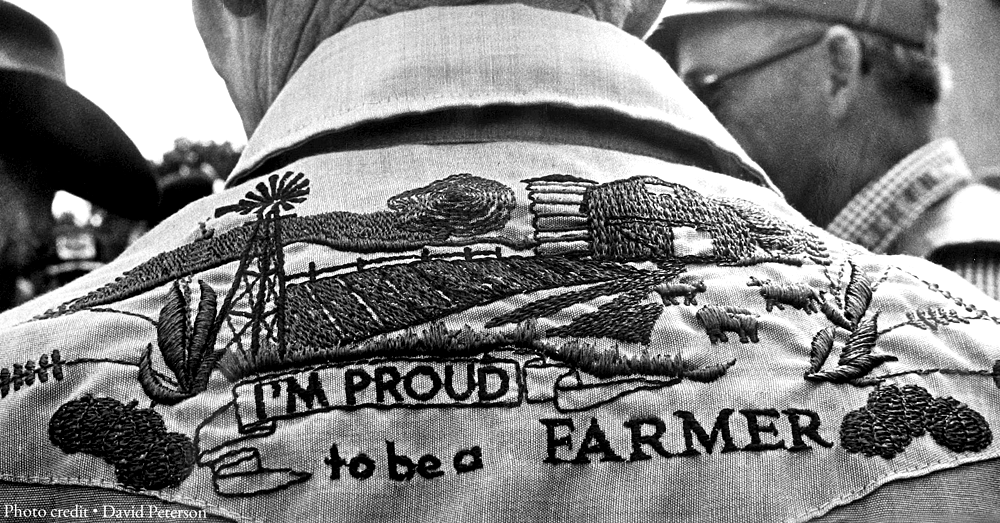
Look & See: Words of Wisdom, and Hope, From Wendell Berry
May 16, 2018 |
Organic Consumers Association
“I think when the traditional people disappear, the traditional values will disappear.”
So says Wendell Berry in a recent film that portrays the changing landscape and shifting values of rural America and describes the lives of farmers who have been deeply affected by the industrial agricultural era.
“Look & See: Wendell Berry’s Kentucky” features observations by this prominent writer, farmer and activist on how the agrarian way of life has been lost.
Berry is one of the most ardent defenders of rural America and traditional farming techniques that use nature as the model. In the last 83 years this poet, novelist and essayist has published more than 40 books. He’s widely revered and celebrated by people eager for his words of wisdom.https://www.youtube.com/watch?v=tYAN_3z4TYs
And words of wisdom are just what viewers of “Look & See: Wendell Berry’s Kentucky” get.
Berry doesn’t appear in the present in the film. Instead, we hear his voice in the background as still images from the early days on his Kentucky farm scroll across the screen, juxtaposed with scenes of destruction.
The film begins with a montage of images of machines chopping down trees, mountaintop removal coal mining, polluted rivers and fast-paced city life as you hear Berry reading his poem “A Timbered Choir:”
Even while I dreamed I prayed that what I saw was only fear and no foretelling,
for I saw the last known landscape destroyed for the sake
of the objective, the soil bludgeoned, the rock blasted.
Those who had wanted to go home would never get there now.
I saw the forest reduced to stumps and gullies
I saw the poisoned river, the mountain cast into the valley;
I came to the city that nobody recognized because it looked like every other city.
Men, women, and children now pursued the objective
as if nobody ever had pursued it before.
Berry’s daughter Mary, executive director of The Berry Center, is interviewed in the film.
“It’s the lack of imagination that my father talks about,” she says. About today’s industrial farming system, she says:
“It’s not really looking at what’s happening. It’s not really counting the cost. It’s some kind of dream or ideal that is false. It serves an economy that is false and it works against nature so it’s not in any way sustainable and it’s made slaves out of a lot of people.”
Mary’s words resonate throughout the film, especially during interviews with Kentucky farmers who are struggling to stay afloat.
Mary also shares the story of the notorious debate in the late 1970s between her father and then U.S. Sec. of Agriculture Earl Butz. Butz, who served under Nixon and Ford, and was a major proponent of the industrialization of farming. Mary Berry thinks her father at that time felt that “we were losing precious things so quickly and he was scared himself and scared for the people he loved, and I can remember that I thought he was lonely.”
During the debate, Wendell Berry said:
“Now, Mr. Butz has given you a lot of quantitative arguments, but let me just take a few of them. We may never meet because he’s arguing from quantities and I’m arguing from values. As I see it, the farmer is standing in his field is not isolated as simply a component of a production machine. He stands where lots of lines cross—cultural lines. The traditional farmer, that is the farmer who was first independent, who first fed himself off his farm and then fed other people, who farmed with his family and who passed the land on down to people who knew it and had the best reasons to take care of it. That farmer stood at the convergence of traditional values. Our values. Independence, thrift, stewardship, private property, political liberty, family, marriage, parenthood, neighborhood. Values that declined as that farmer is replaced by technologies whose only standard is profit.”
Though the film focuses on the many challenges farmers face in the Big Ag era, it drives home the urgent message that we must transition away from industrial farming and back to an agrarian way of life.
As Wendell Berry writes in “The Art of the Commonplace: The Agrarian Essays:”
…the care of the earth is our most ancient and most worthy and, after all, our most pleasing responsibility. To cherish what remains of it, and to foster its renewal, is our only legitimate hope.
That hope that Berry clings to can be found in regenerative agriculture, a farming model that regenerates and revitalizes the soil and the environment. Regenerative farming leads to healthy soil, capable of producing high-quality, nutrient-dense food while simultaneously improving the land, and ultimately leading to productive farms and healthy communities and economies.
Regenerative farming and ranching are dynamic and holistic, incorporating permaculture and organic farming practices, including conservation tillage, cover crops, crop rotation, composting, mobile animal shelters and pasture cropping, and leading to increased food production, more income for farmers, and more high-quality organic soil.
Want to join the regenerative movement and be a part of the community that’s dedicated to fixing the world’s climate, hunger and environmental crises through regenerative and organic food, farming and land management? If so, learn more here.
Want to watch “Look & See: Wendell Berry’s Kentucky?” You can download it via Netflix, order the film online or host a screening.
Organic Consumers Association is a nonprofit consumer advocacy and grassroots organization. Keep up-to-date with OCA’s news and alerts by signing up for our newsletter.
